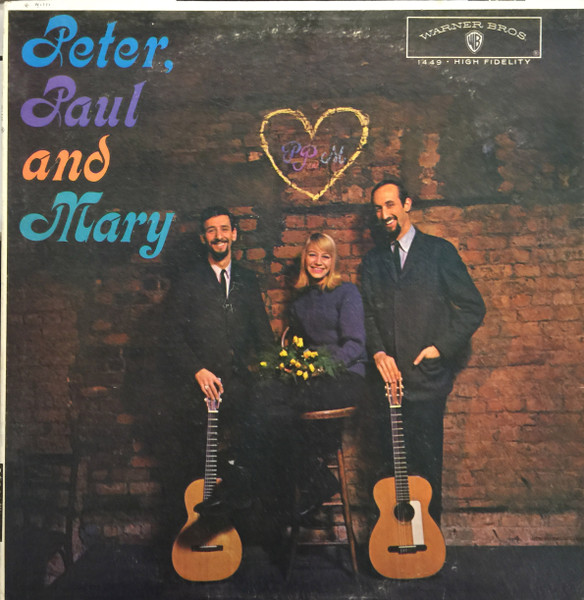 Tammy Wynette’s “Stand By Your Man” is one of the most iconic and polarizing songs in the history of country music. Released in 1968, it became her signature song, elevating her from a Nashville star to a national symbol of traditional womanhood and romantic loyalty. It also sparked decades of debate and analysis, praised by some as a heartfelt ode to enduring love and criticized by others as a capitulation to outdated gender norms. But beyond the polemic, what remains is a beautifully crafted ballad that showcases Wynette’s aching voice, unflinching emotional honesty, and the songwriting alchemy that could only have emerged from the Nashville of that era. It’s not just a song—it’s a cultural lightning rod, a sonic monument, and a haunting echo of a time when music, politics, and personal identity collided with raw emotion.
Tammy Wynette’s “Stand By Your Man” is one of the most iconic and polarizing songs in the history of country music. Released in 1968, it became her signature song, elevating her from a Nashville star to a national symbol of traditional womanhood and romantic loyalty. It also sparked decades of debate and analysis, praised by some as a heartfelt ode to enduring love and criticized by others as a capitulation to outdated gender norms. But beyond the polemic, what remains is a beautifully crafted ballad that showcases Wynette’s aching voice, unflinching emotional honesty, and the songwriting alchemy that could only have emerged from the Nashville of that era. It’s not just a song—it’s a cultural lightning rod, a sonic monument, and a haunting echo of a time when music, politics, and personal identity collided with raw emotion.
Written by Wynette and legendary producer Billy Sherrill during a 20-minute burst of inspiration, “Stand By Your Man” was recorded at a time when Tammy was already becoming known as the “First Lady of Country Music.” Sherrill, known for his orchestral “countrypolitan” sound, encouraged Wynette to step into more ambitious musical territory. They were searching for a song that would take her to the next level. According to Wynette, she had doubts about the song at first—she worried it might alienate her audience or be too bold in its directness. But when she sang those opening lines—“Sometimes it’s hard to be a woman, giving all your love to just one man”—the power of the track became undeniable.
Musically, “Stand By Your Man” is lush and dramatic, blending the twang of country instrumentation with sweeping strings and gospel-tinged piano. The arrangement is expansive yet intimate, providing a rich canvas for Wynette’s vocal performance, which is by turns tender, pleading, and resolute. Her voice quivers with vulnerability, but there’s an iron core beneath it—an emotional complexity that elevates the lyrics from mere submission to something closer to self-sacrificing strength. Wynette doesn’t sound like someone who is trapped. She sounds like someone who has made a hard choice in the face of pain and uncertainty. That nuance is what gives the song its enduring power.
The lyrics are simple but weighty. They speak to the messiness of human relationships, particularly when they are tested by infidelity, disappointment, or societal pressure. “You’ll have bad times, and he’ll have good times, doing things that you don’t understand,” Wynette sings, acknowledging the imbalance that can exist in love, especially between men and women in traditional roles. Yet the chorus flips that imbalance into a vow: “Stand by your man, and show the world you love him.” That line has inspired both fervent allegiance and feminist backlash over the decades. To some, it is a powerful statement of unconditional love. To others, it is an outdated ideal that excuses male misbehavior and relegates women to passive roles.
Context is everything when it comes to understanding the song’s impact. Released at the height of the women’s liberation movement, “Stand By Your Man” became a lightning rod for criticism. Feminists, including Gloria Steinem, lambasted the song for perpetuating the notion that women should endure betrayal and mistreatment for the sake of preserving a relationship. The song seemed to fly in the face of the calls for female empowerment, equality, and self-respect that were gaining momentum across the country. To them, Wynette’s message was retrograde and damaging.
Wynette, for her part, bristled at that interpretation. She never saw herself as a political figure, and she often emphasized that the song was meant to be personal, not prescriptive. She believed in the emotional truth of the lyrics—that love sometimes requires patience and understanding, that no one is perfect, and that sticking with someone through hardship can be an act of strength, not weakness. Her own life bore out that belief in painful and public ways. Married five times, including a tumultuous relationship with fellow country legend George Jones, Wynette knew better than anyone how complicated love could be. Her real-life heartbreak gave her performance an authenticity that no ideology could dismiss.
The public reaction to “Stand By Your Man” was swift and overwhelming. The song shot to number one on the country charts and crossed over to the pop charts, reaching number 19 on the Billboard Hot 100. It became an international success and remains one of the best-selling singles by a female country artist. The song won Wynette a Grammy for Best Female Country Vocal Performance and helped solidify her place as a pillar of the genre. Over the years, it has been covered by countless artists, from Dolly Parton to Elton John to Lyle Lovett, each bringing their own interpretation to its enduring melody and message.
The song also became part of the American political landscape. Perhaps most famously, Hillary Clinton referenced it in a 1992 interview when defending her support of her husband, Bill Clinton, amid allegations of infidelity. “I’m not sitting here, some little woman standing by my man like Tammy Wynette,” she said, attempting to distance herself from what she saw as the stereotype the song represented. Wynette responded with hurt, saying she felt insulted and misunderstood. Clinton later apologized, but the moment underscored how deeply embedded the song had become in the national consciousness—not just as a piece of music, but as a symbol, a shorthand for a certain type of woman, a certain type of loyalty.
Despite—or perhaps because of—the controversy, “Stand By Your Man” endured. Its emotional resonance continued to draw listeners who saw in it not subservience but sincerity. Wynette herself always sang it with conviction, even as her personal life unraveled. Her duets with George Jones added further layers to the song’s meaning. Their volatile relationship was tabloid fodder, filled with breakups, reconciliations, substance abuse, and mutual heartbreak. And yet, when they sang together, there was an almost unbearable tenderness between them. It was as if the song had ceased to be just a hit and had become a vow, a confession, a wound that never quite healed.
Wynette’s place in country music history is inseparable from this song. She recorded dozens of hits, many of which dealt with similar themes of domestic life, longing, and emotional endurance. But “Stand By Your Man” looms largest because it captured a moment and started a conversation that never really ended. It pushed country music into the mainstream, paved the way for other female artists to assert their voices, and gave millions of women a way to articulate feelings they couldn’t always name. Whether one agrees with its message or not, there’s no denying its impact.
Part of the song’s genius lies in its universality. While it’s clearly written from a woman’s perspective, the core idea—that love sometimes asks for loyalty even when it hurts—is not gender-specific. The song speaks to anyone who has ever had to reconcile love with imperfection, who has ever chosen to stay when leaving might have been easier. It recognizes that relationships are not always fair or symmetrical, and that choosing to remain is not always an act of surrender. Sometimes, it’s an act of defiance.
Over the years, reinterpretations of “Stand By Your Man” have taken it in wildly different directions. Some cover versions lean into its irony, treating it as a kitschy relic. Others embrace its sincerity, slowing it down or adding gospel flourishes. Its use in films like The Blues Brothers has added to its pop culture longevity, while its presence in drag performances and queer reinterpretations has given it new layers of meaning. It has become a canvas onto which different generations and subcultures project their own ideas about love, loyalty, and identity.
Tammy Wynette passed away in 1998, but the song she co-wrote with Billy Sherrill continues to live on. It’s played at weddings and karaoke nights, in country bars and political rallies. Its melody is instantly recognizable, its chorus unforgettable. But perhaps what makes “Stand By Your Man” truly timeless is that it refuses to be easily categorized. It’s both tender and tough, simple and sophisticated, dated and eternal. It exists at the crossroads of personal truth and public myth.
“Stand By Your Man” endures because it tells a story that never stops being relevant. It’s the story of human frailty, of emotional compromise, of love in the real world—not the fairy tale kind, but the kind that is messy, inconvenient, and sometimes painful. It’s a story that invites both empathy and critique, one that challenges listeners to consider what loyalty really means, and whether standing by someone is a sign of weakness or an act of radical strength. And most of all, it’s a story that Tammy Wynette sang with such soul, such honesty, and such passion that it became more than a song. It became a legacy.
There will always be debate around “Stand By Your Man.” Its message will continue to be interpreted, argued over, and redefined by each new generation. But beyond the noise of discourse, the song remains what it always was: a beautifully written, heartbreakingly performed ballad by a woman who understood the complexities of love better than most. Tammy Wynette didn’t just sing about standing by your man—she lived it, questioned it, and ultimately gave the world a song that captured both the beauty and the cost of doing so. It’s a song that demands to be heard—not just once, but again and again—because what it says about love, pain, and devotion is as complicated and true now as it was in 1968.


